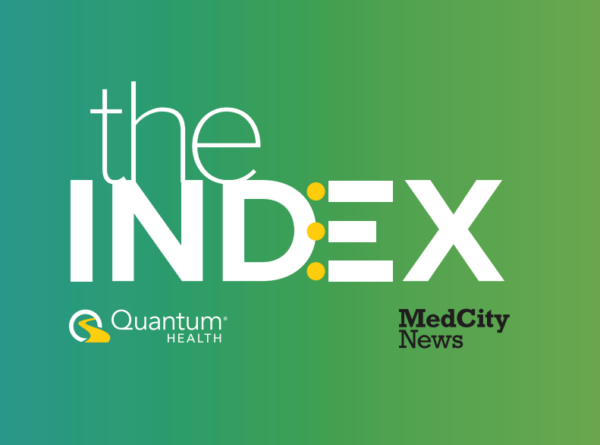

As the healthcare landscape becomes more complex, so does the job of consultants who advise self-insured employers on benefit plans.
Nearly two in three benefits consultants, or 63%, say their work has grown increasingly consultative, making them trusted advisers with more of a hands-on role with their clients, according to the inaugural MedCity News survey called “The 2023 Benefit Consultant Sentiment Index” conducted this summer in partnership with Quantum Health.
Clients are relying more than ever on their benefits consultants to assist with long-term strategic planning and introduce new ideas, the survey found. In addition, consultants are spending more time evaluating vendors and parsing options in growing areas such as mental health, inclusive family planning and chronic care.
The proliferation of benefits providers is giving rise to greater need for integration and navigation, another area where consultants’ advice is increasingly sought, according to the survey.
“Integration is becoming sort of a buzzword around ‘how do we bring 20 different point solutions into one place and make it effective and get the utilization we need?’” one consultant said in a follow-up interview to the survey. “It feels like independent navigation companies have done a better job of that.”
The core job of a benefits consultant has not changed. They help employers craft a menu of benefits for employees, ensure employers and employees can get the most value from their benefits, and offer an independent, outside voice guided by industry data and trends.
But the job has been changing over the last few years due to multiple factors. They include a historically tight labor market, an explosion of digital health offerings, and growing attention to employee well-being and mental health.
“A lot of the focus now isn’t even on the medical. It’s on the lifestyle benefits, what I call the benefits that make the employees feel valued, the specialized benefits or benefits that speak specifically to them,” said Harrison Newman, a senior vice president and benefits consultant for Corporate Synergies, based in Camden, New Jersey.
That includes everything from fertility benefits to financial wellness solutions, Newman said.
Employers are still focused on cost, of course. But they also are placing greater emphasis on outcomes and other criteria to guide decision making, according to the survey. For instance, employers are looking for deeper analysis of use versus cost versus plan utilization, according to one consultant on the survey. Other high-priority areas include member engagement and satisfaction.
Well-being and mental health are among the areas of greatest change in benefits, particularly in the wake of the Covid-19 pandemic and the growing attention to employee well-being. Not surprisingly, mental health benefits are the most often requested by self-insured employers, according to the survey.
Self-employed insurers also are seeking more support for employees with chronic conditions. According to the survey, common recommendations from consultants include pro-active, high-touch case management solutions, virtual care support options, and access to extended expertise, such as clinical trials and centers of excellence.
“We see that a lot in the market today,” said Newman, noting that oncology centers of excellence have become a “huge focus” for employers.
Other top benefit requests revolve around family planning. Employers are interested in supporting employees in the areas of fertility and adoption, with an emphasis on benefits that are inclusive of all employees and their families.
Given the explosion in benefits, it is no wonder that self-insured employers are leaning on navigation resources that help employees find what they need or answer their questions. The resources are especially critical at the point of service, since plan members may not remember all the information they received during open enrollment, Newman says.
Insurers often field their own navigation units. However, more than half of consultants, or 53%, typically guide their clients to independent navigation companies, citing the greater expertise, unbiased service and better results from independent firms. Further, three in five consultants say carrier-backed navigators do not meet all their clients’ needs, since a carrier’s focus on cost creates potential conflicts of interest when steering employees toward providers and other services.
Like other aspects of healthcare, navigation itself is expected to change in the years ahead, according to the survey. Consultants foresee a growing emphasis on integration, which one survey respondent described as creating “streamlined patient journeys leveraging longitudinal health records, bridging patients, providers and customized therapies from pharma and life sciences.”
Another consultant envisions integration as the “consolidation of care management solutions under a smaller number of vendors and one overall care coordinator to help employees know where to go and when.”
However integration is defined, artificial intelligence is likely to play a role. Consultants expect the technology will lead to a more tailored navigation experience for plan members.
Other advantages of AI include enabling deeper data for predictive analytics and the ability to identify trends through data observation, according to the survey.
Health plans and employers have to guard against the potential for AI to exacerbate existing inequities in medical care, one consultant said. “But I think there is a huge beneficial use as well.”
The survey gathered responses from more than 100 veteran healthcare benefits consultant leaders, with the majority, or 60%, having more than 10 years of experience advising employers on healthcare benefits. The consultants work with self-insured employers of all sizes.
Sign up to download the full report here and gain insights into areas like:
- The role of AI
- Cost management strategies
- Client Partner values and culture
- Vision of next chapter in healthcare














